Mosquitoes, despite being nuisances, play vital roles in ecosystems. Uncontrolled populations disrupt ecological balances and act as disease vectors. Traditional chemical pesticides pose significant risks to non-target organisms and foster insect resistance. There's a growing demand for eco-friendly mosquito control methods that minimize environmental impact while maintaining efficacy. Natural repellents, biological controls, and community engagement are key alternatives. By integrating these strategies with an IPM approach, it's possible to preserve ecosystems while controlling mosquito populations safely and effectively.
“Mosquitoes, while an undeniable nuisance, significantly impact ecosystems worldwide. This article explores eco-friendly mosquito control methods as a sustainable alternative to traditional practices. We delve into the negative effects of conventional techniques and highlight the rising popularity of natural solutions. From understanding mosquito ecology to implementing biological controls and engaging communities, these strategies offer a holistic approach to managing these insects. By combining scientific knowledge with community involvement, we can achieve effective, long-lasting mosquito control while preserving our environment.”
Understanding the Impact of Mosquitoes on Ecosystems
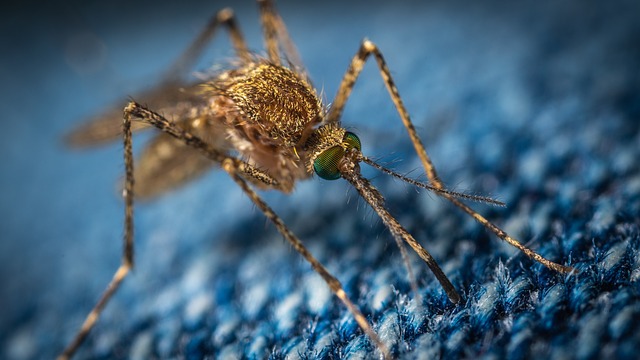
Mosquitoes, though often considered mere annoyances, play a significant role in ecosystems worldwide. They serve as a vital link in the food chain, acting as both predators and prey. Many species depend on mosquitoes for sustenance, from birds and bats to larger predators like snakes and fish. However, their ecological impact extends beyond direct consumption. Mosquitoes contribute to nutrient cycling by dispersing seeds and facilitating decomposition processes.
Uncontrolled mosquito populations can disrupt these delicate balances, leading to severe environmental consequences. They are also vectors for numerous diseases, posing significant threats to both human health and wildlife. Effective mosquito control is therefore not just about comfort; it’s about maintaining the intricate web of life that sustains our ecosystems. This underscores the need for eco-friendly methods that address the problem without causing further ecological damage.
Traditional Mosquito Control Methods and Their Drawbacks
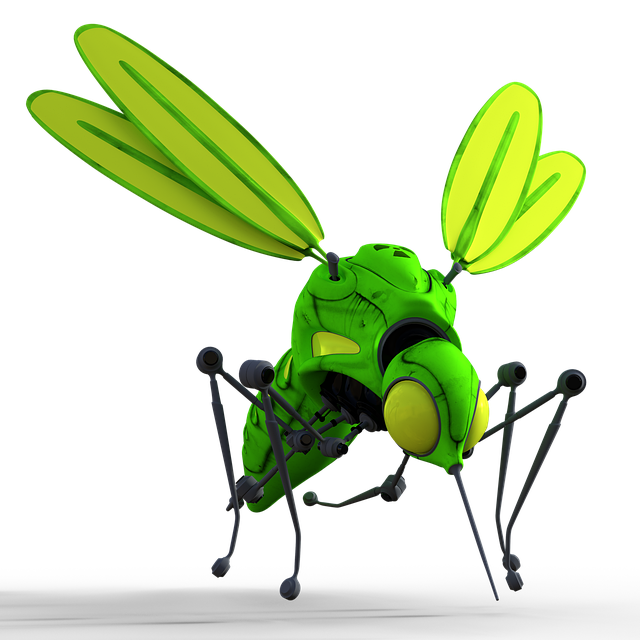
Traditional mosquito control methods often rely on chemical pesticides, which can have significant drawbacks. These synthetic compounds are designed to kill mosquitoes at various stages of their life cycle but pose risks to non-target organisms, including beneficial insects, birds, and aquatic life. Exposure to these chemicals can lead to ecological imbalances and potential health hazards for humans and pets.
Additionally, traditional methods are often reactive rather than preventive. They focus on eliminating mosquitoes after they have emerged, failing to address the breeding grounds and larval habitats. This approach contributes to the development of insect resistance over time, making it more challenging to control mosquito populations effectively. As a result, there is an urgent need for eco-friendly alternatives that prioritize sustainability and minimize environmental impact while providing efficient mosquito control.
The Rise of Eco-Friendly Alternatives
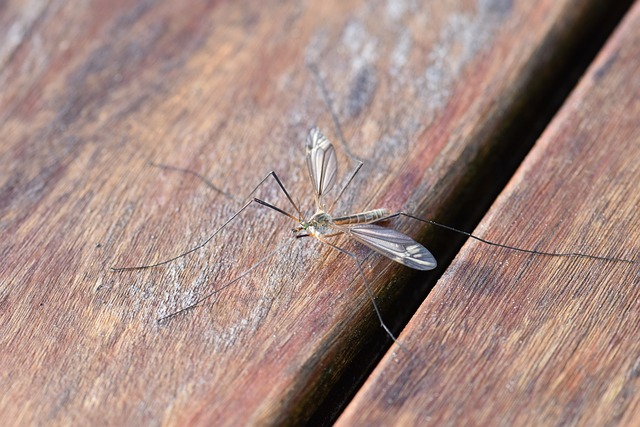
The demand for effective yet environmentally friendly mosquito control methods has been on the rise, driven by growing concerns over chemical pesticides and their impact on ecosystems and human health. Traditional mosquito control practices, often involving synthetic chemicals, have long been a staple in pest management. However, as environmental awareness increases, there’s a shift towards more sustainable solutions that minimize ecological disruption without compromising efficacy.
Eco-friendly alternatives to conventional mosquito control offer a promising approach by leveraging natural predators, repellents, and habitat manipulation. These methods not only reduce the reliance on chemical interventions but also promote biodiversity and preserve ecosystems. From introducing natural enemies like fish and birds that feed on mosquitoes to utilizing plant-based repellents and modifying water sources to disrupt breeding grounds, these strategies provide a holistic and safer approach to mosquito control.
Natural Repellents and Their Effectiveness

Many natural repellents have proven effective in mosquito control, offering a safer and more environmentally friendly alternative to chemical sprays. Essential oils like citronella, lavender, and eucalyptus are well-known for their insect-repelling properties. These oils contain compounds that interfere with mosquitoes’ sense of smell, making them less attracted to the area. For instance, citronella oil, derived from lemongrass, is a popular ingredient in candles and sprays due to its strong scent that can ward off mosquitoes up to 80 percent when used correctly.
Other natural options include plants like mosquito-repelling flowers (marigolds, lavender, basil) and herbs (mint, rosemary). These plants contain compounds that naturally repel mosquitoes, making them excellent additions to gardens or indoor spaces. Additionally, certain foods, such as garlic and cider vinegar, are known to deter mosquitoes due to their strong odors. Incorporating these natural repellents into daily routines and outdoor activities can significantly reduce mosquito bites while promoting a more sustainable approach to mosquito control.
Integrating Biological Control into Mosquito Management

Integrating biological control into mosquito management offers a sustainable and eco-friendly approach to mosquito control. Instead of relying heavily on chemical pesticides, this method harnesses the power of natural predators and parasites to regulate mosquito populations. By introducing beneficial insects such as dragonflies, damselflies, and certain species of wasps, we can create a balanced ecosystem that targets mosquitoes while minimizing harm to other insects and the environment.
This strategy is particularly effective in water bodies, where mosquitoes breed. Natural predators feed on mosquito larvae, disrupting their life cycle and reducing adult mosquito populations. This eco-friendly method not only helps control mosquito-borne diseases but also promotes biodiversity, ensuring a healthier balance within the local ecosystem. By integrating biological control, communities can achieve effective Mosquito Control without compromising their commitment to environmental preservation.
Community Engagement for Sustainable Solutions
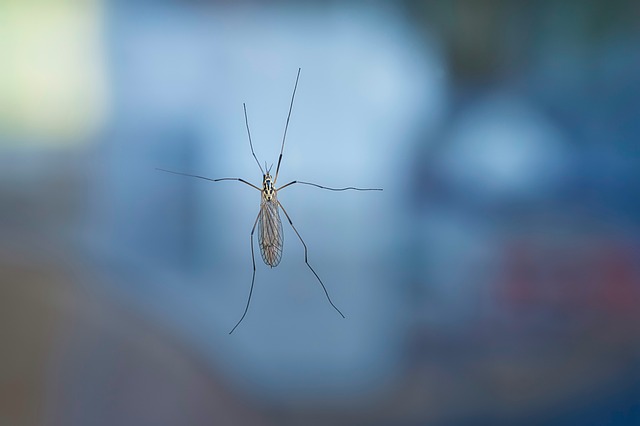
Community engagement plays a vital role in implementing sustainable mosquito control solutions. By empowering locals, we can create a comprehensive and eco-friendly approach to managing these pests. Education is key; raising awareness about the environmental impact of traditional chemicals and promoting natural alternatives fosters a culture of responsibility. Encourage residents to participate actively by sharing knowledge, reporting breeding sites, and adopting best practices for reducing mosquito habitats in their areas.
This collaborative effort enables communities to take ownership of their mosquito control initiatives. Localized strategies, tailored to specific needs and environments, are more effective and less detrimental to ecosystems. When everyone from homeowners to local businesses contributes, it becomes easier to sustain long-term solutions, ensuring a healthier balance between human comfort and ecological preservation.
Overcoming Challenges and Ensuring Long-Term Success
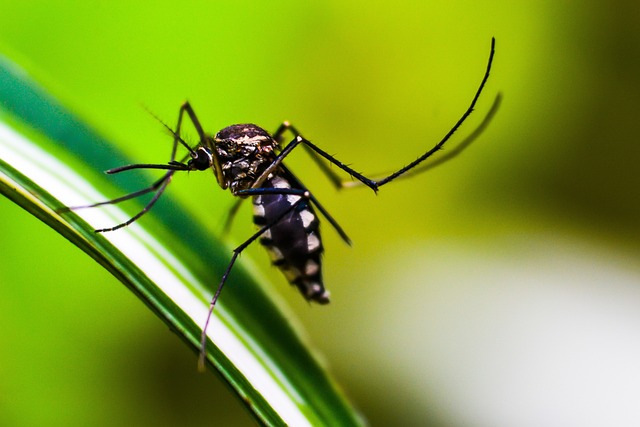
Overcoming challenges is a crucial aspect of implementing effective mosquito control strategies for long-term success. One of the primary hurdles is ensuring environmental safety while ridding areas of these pests. Many traditional methods use harmful chemicals that can contaminate water sources, harm beneficial insects, and pose risks to human health. Eco-friendly alternatives, such as biological controls, natural repellents, and targeted applications of organic pesticides, offer safer solutions. However, these methods may require more time and effort to implement effectively.
To achieve sustained success, it’s essential to adopt an integrated pest management (IPM) approach that combines multiple strategies. This includes monitoring mosquito populations, removing standing water where possible, and educating communities on preventing breeding grounds. By fostering collaboration between residents, local governments, and environmental agencies, we can create a comprehensive plan that addresses the complex nature of mosquito control while promoting ecological balance.
